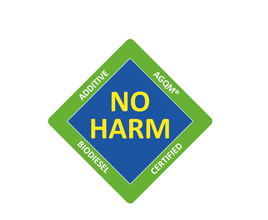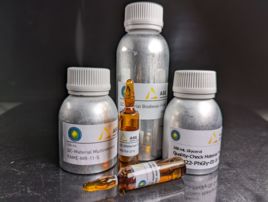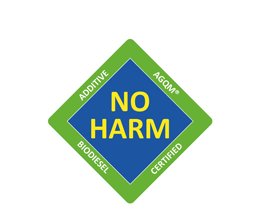
-
Why are additives used in fuel?
-
Test criteria no-harm test oxidation stabilizers
-
How can I have my additive tested?
-
No-harm list for oxidation stabilizers
Why are additives used in fuel?
A large number of different additives are used in fossil and renewable fuels with the aim of positively influencing their properties. In biodiesel, mainly oxidation stabilizers and flow improvers have been used to date. The European standard for biodiesel (EN 14214) expressly recommends the use of oxidation stabilizers during the production process in order to ensure sufficient stability of the finished fuel.
In addition to the well-known stabilizer BHT (3,5-di-tert-butyl-4-hydroxytoluene), a large number of other products are available, some of which have a significantly more pronounced stabilizing effect. When using oxidation stabilizers for biodiesel, which is used as a blending component, it is very important that they do not have any unwanted interactions with the diesel fuel, its additives or the engine oil. For safe use - from blending to application and combustion in the engine - negative influences of these additives must be identified in advance using suitable test procedures (e.g. no-harm tests).
In cooperation with the mineral oil and additive industries, test criteria have been defined that can be used to test oxidation stabilizers for possible undesirable interactions.
Test criteria oxidation stabilizers
The no-harm test for oxidation stabilizers comprises the following test criteria:
- Compliance with predefined minimum requirements (B100)
- XUD9 test, according to CEC F-23-1-01 (B10)
- Filtration test according to DGMK 663 (B10)
- Test for engine oil compatibility according to DGMK 531-1 (mod.; B10)
- Relative efficiency of oxidation stabilizers to BHT (B100)
The most important minimum requirement is to achieve an oxidation stability of at least 9 h in pure FAME (RME:SME - 70:30) at the dosing rate of the additive recommended by the manufacturer. Furthermore, the safety-related properties of the biodiesel (e.g. flash point, water hazard class, etc.) must not change and the limit values of EN 14214 for biodiesel must also be complied with after additivation. As a special challenge, interaction tests are carried out with three oxidation stabilizers that have already been successfully tested. Subsequently, engine, filtration and engine oil compatibility tests are carried out in a B10 (diesel fuel with 10% (V/V) biodiesel blend).
In addition to the test parameters relevant to the application (minimum requirement, filtration, engine oil and interaction test), the relative efficiency compared to BHT is also of great interest. In a defined procedure, four different scenarios are used to determine which dosing rates of the tested stabilizers correspond in their effectiveness to the reference dosing of BHT. The efficiency test is not essential for passing the no-harm test.
Products that pass all test criteria are included in the no-harm list for oxidation stabilizers, which is available free of charge on request. Additive manufacturers receive a certificate containing all no-harm test results. If interested, the certificate can be requested from the relevant manufacturers.
Interactions with the company-specific additive packages are not analyzed in this context.
How can I have my additive tested?
Would you also like to have one of your products certified? Then register here.
No-harm list for oxidation stabilizers
We will be pleased to provide you with a personalized copy of the no-harm list free of charge.
Please complete the form below and we will send you the list as a pdf file by e-mail for your personal use.
No-harm test report
You can order the no-harm test report with all anonymized test results of the successful oxidation stabilizers here.






